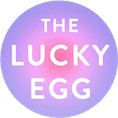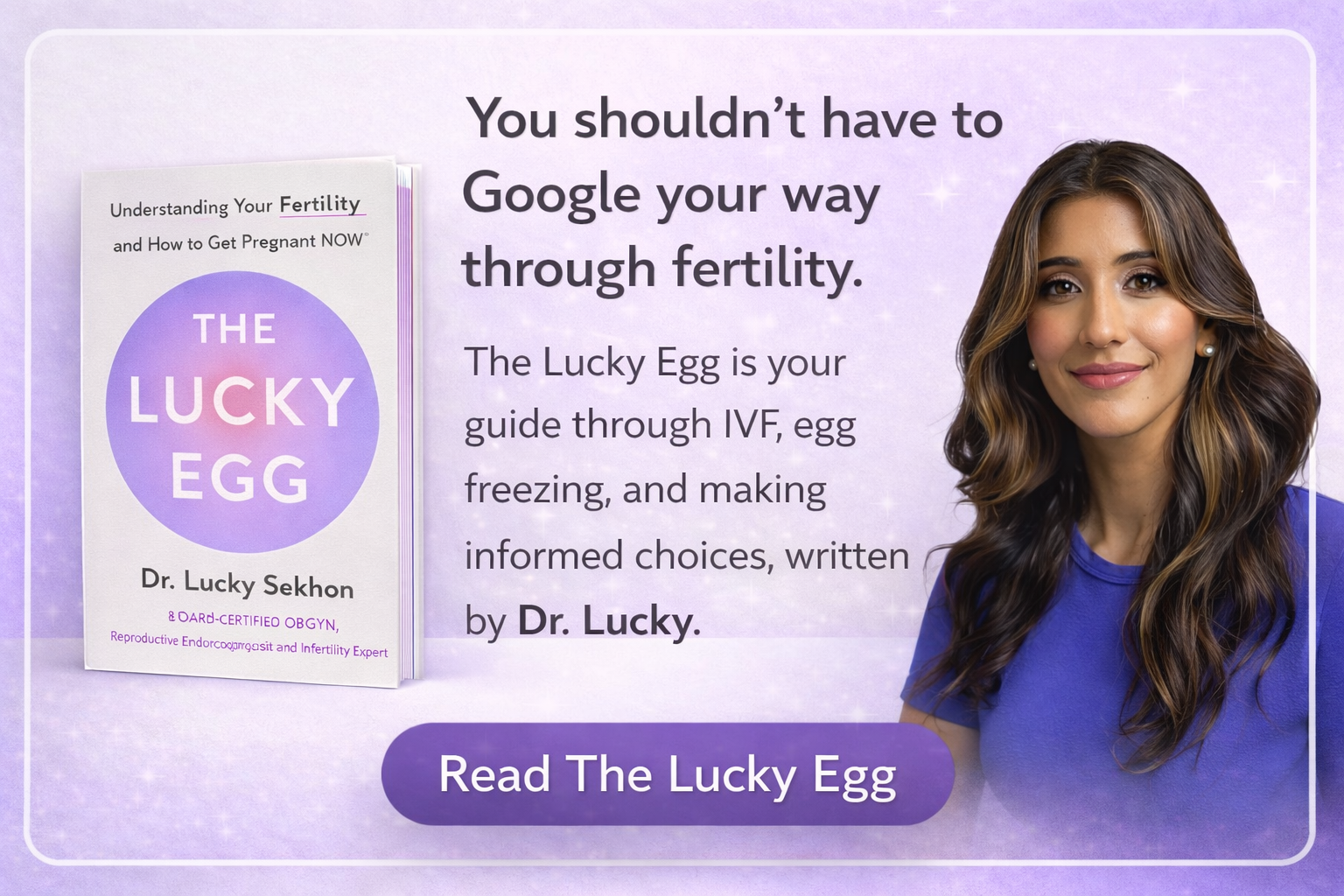My (Brutally) Honest Review of ‘It Starts With the Egg’
It’s the single most asked-about book in my DMs: What do you think about It Starts With The Egg? And for good reason—it promises answers and control in a space where so many feel overwhelmed and unsure. I get it. When you’re navigating infertility or preparing for fertility treatment, it’s human to want a game plan—something concrete you can do. That’s the pull of this book.
But if I’m being honest? My frustration with It Starts With The Egg was one of the main reasons I sat down to write The Lucky Egg. Because I wanted to offer something that empowered without overburdening. Something rooted in evidence, not anecdotes. Something that acknowledges the complexity of real-life fertility decisions.
I’m Dr. Lucky Sekhon, a double board-certified Reproductive Endocrinologist and Infertility (REI) specialist practicing in New York City. I use this blog, along with my Instagram account and monthly newsletter, to help you cut through fear, fad advice, and fertility misinformation—with scientifically grounded answers and real clinical insight.
Here’s my take on It Starts With The Egg—backed by science, clinical experience, and the stories of the thousands of patients I’ve cared for.
What It Starts With The Egg Gets Right
Let’s start with the good. The book brings attention to endocrine-disrupting chemicals (EDCs) and highlights research around supplements like CoQ10—topics that do deserve more spotlight. For someone early in their fertility journey, it offers a tangible starting point: declutter your environment, rethink your plastic use, start a prenatal. I’ve had patients who found a sense of empowerment from making lifestyle changes inspired by the book. That matters. But that’s where the praise ends.
Where It Goes Very, Very Wrong
Authorship Without Clinical Expertise
Here’s my biggest issue: the author is not a medical or fertility expert. Personal experience with IVF is valid—it’s part of why I bring my own story into The Lucky Egg. But experience doesn’t equate to expertise.
I’ve had patients show up with “protocols” inspired by this book: supplement regimens a dozen pills deep, timelines that are arbitrary, and expectations that border on magical thinking. When patients follow these recommendations without clinical oversight, they risk doing more harm than good.
Fertility isn’t one-size-fits-all. That’s what makes this book’s authoritative tone so dangerous.
Oversimplifying Complex Science
Fertility is biology, yes—but it’s also genetics, hormones, age, anatomy, and sometimes just bad luck. The book flattens this complexity into binary “do this, avoid that” rules that don’t reflect how we actually treat infertility.
I’ve seen patients blame themselves after following everything in the book and still failing to conceive. It creates a culture where not getting pregnant feels like a personal failure rather than what it often is—a complex medical challenge.
Cherry-Picked Studies and Misinformation
Just because something is “cited” doesn’t make it sound science. Many studies used in It Starts With The Egg are small, poorly designed, or outdated. For instance, the MTHFR variant—which the book wrongly associates with infertility and miscarriage—is a red flag. Up to a third of the population carries it, and unless it’s associated with elevated homocysteine (which is rare), it’s irrelevant. Yet the book suggests switching to methylfolate over folic acid—advice that flies in the face of decades of data showing folic acid is the only proven way to reduce neural tube defects.
Supplements Should Be a Tool, Not a Trap
There’s a reason I spend entire consults reviewing supplement use with my patients: because context is everything.
This book’s blanket recommendations for things like DHEA can backfire, especially in older patients or those with PCOS, where androgen levels are already elevated. And what it fails to mention? The author has a financial stake in some of the supplements she recommends. That’s a huge conflict of interest, and it’s never disclosed.
Let’s be real: the supplement industry is largely unregulated. You deserve better than a shopping list with no safety guardrails.
The Emotional Toll: Self-Blame and Misdirection
One of the saddest patterns I see is patients delaying medical treatment while clinging to books like this. They spend months—even years—on lifestyle tweaks and supplements, only to find they’ve run out of time for options like IVF or egg freezing.
And worse, they blame themselves. For not doing enough. For doing it “wrong.” For not getting pregnant after a checklist of changes.
Fertility is time-sensitive. And while lifestyle shifts can help, they can’t reverse the biology of aging eggs or underlying medical issues like endometriosis or tubal blockages.
What You Deserve Instead
You deserve advice tailored to you. Based on lab work, medical history, and reproductive goals. You deserve evidence, not anecdotes. And support that guides without guilt.When I wrote The Lucky Egg, it was to fill in the gaps this book leaves behind. To say, “Yes, some of this stuff matters—but here’s the real context. Here’s what actually works. Here’s what’s worth your time.”
Because your fertility journey is too important to be steered by oversimplified advice and Instagram-friendly protocols.


